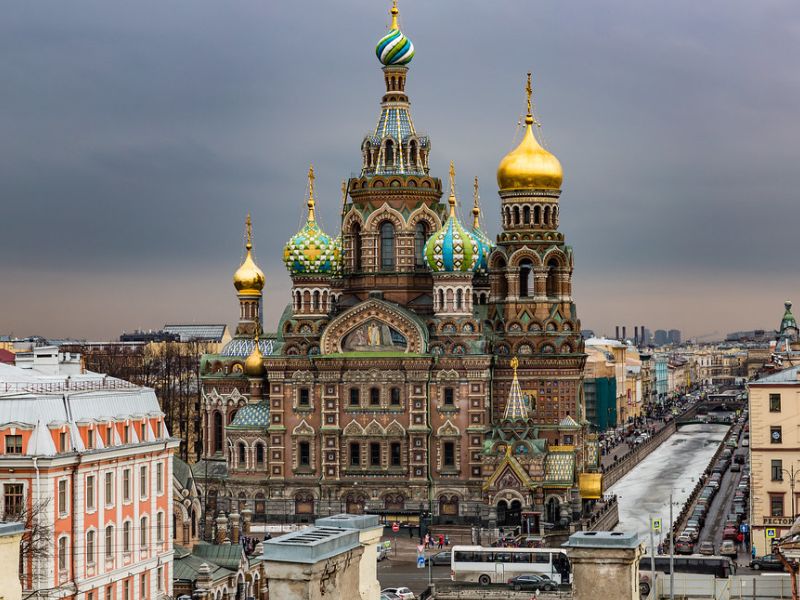Russia: Where the Government Controls, Represses the Church

11/27/2024 Russia (International Christian Concern) — Harsh communist controls on society and an aggressive military campaign against Ukraine have led to increased crackdowns on religious freedom in areas of Russian control.
Long known for its hostility to centers of power or influence outside the government, Russia is a longtime enemy of human rights and religious freedom. The U.S. Commission on International Religious Freedom has recommended that the U.S. Department of State designate Russia for its systematic abuses of religion every year since 2009, a recommendation that the department has followed in some form since 2018. Through careful control of religious institutions, the outlawing of certain religious groups, and various laws that criminalize certain religious statements, the Russian government has created a regime of tight control and repression over religion that is among the worst in the world.
Quick Facts
Population: about 141 million
Religions: Orthodox Christian 72% or about 101.39 million; Secular 18% or about 25.34 million; Muslim 7% or about 9.85 million; Other 1% or about 1.40 million
Ethnicities: Russian 77.7%; Tatar 3.7%; Ukrainian 1.4%; Other 17.2% (2010 est.)
Types of Persecution
Regulation of religious affairs — The Russian government heavily regulates the internal affairs of registered religious groups in the country and requires all religious groups to register or report their activities to government officials.
Military incursions — Russia’s war in Ukraine has led to the destruction of many Ukrainian religious sites and an internal crackdown on religious figures who might be critical of the war.
Summary
On paper, Russian law allows the government to restrict religion only to the extent necessary to protect the country’s structure and security. Given the Russian Constitution, which establishes Russia as a secular state and includes sweeping protections of religious freedom, a casual observer of the Russian legal system might be tempted to assume that the country allows its citizens to practice their faiths freely, unencumbered by the government. Unfortunately, that assumption would be dramatically incorrect.
In fact, the Russian government allows religious practice only insofar as it promotes the political interests of those in charge. It meets all other religious expressions, Christian or not, with severe punishment and swiftly extinguishes them whenever possible.
While religious organizations are not universally required to register with the government, any religious group must, at minimum, alert the authorities of its existence and may not open bank accounts or otherwise operate as a legal entity without fully registering with the government. Officials keep close tabs on religious organizations within their jurisdiction and reserve the right to veto public religious activities.
Nongovernmental civil society organizations are also subject to strict scrutiny. In 2023, the government liquidated a religious freedom watchdog organization, the SOVA Center for Information and Analysis. In recent years, the government has similarly shut down individual human rights activists and lawyers.
In line with its paranoia of outside influences threatening its grip on power, the government is opposed to foreign missionary activity and limits the ability of religious groups to bring in visitors from outside of the country.
In recent years, the Russian government has stepped up its efforts to use the Russian Orthodox Church as a propaganda arm, especially regarding its war in Ukraine. Language from the church has become increasingly aligned with President Vladimir Putin’s political ambitions, with the church explicitly blessing the invasion of Ukraine and encouraging its followers to support Putin politically.
The government has dealt harshly with religious figures who have spoken out against the war in Ukraine. In March 2023, for example, a Russian court sentenced an Orthodox Christian, Mikhail Simonov, to seven years in prison. Simonov had opposed the war on social media in a post that invoked his religious convictions and was consequently prosecuted for spreading “political hatred” and the publication of “knowingly false information.” The courts have prosecuted hundreds of Russians for anti-war statements since the war in Ukraine began.
In Russia-occupied Ukraine, the Russian government has “severely curtail[ed] religious freedom,” according to a 2024 report by the U.S. Commission on International Religious Freedom. “In Russian-occupied territories, de facto authorities banned religious groups, raided houses of worship, and disappeared religious leaders.” Russian bombardment of the occupied regions has also led to the widespread destruction of religious sites, including the important Orthodox Transfiguration Cathedral in Odesa. Various analysts estimate that Russia has damaged between 125 and 630 religious sites since February 2022.
Inside its borders and out, Russia is a consistent enemy of religious freedom. While the international community focuses on the pressing political and military issues caused by Putin’s regime, it would also do well to consider the impact Russia is having on religious freedom in the region and make efforts to bolster civil society groups, support religious organizations, and protect sacred sites threatened by Russian aggression.
To read our coverage of persecution-related news from Russia, visit the ICC Newsroom. For interviews, please email [email protected].
